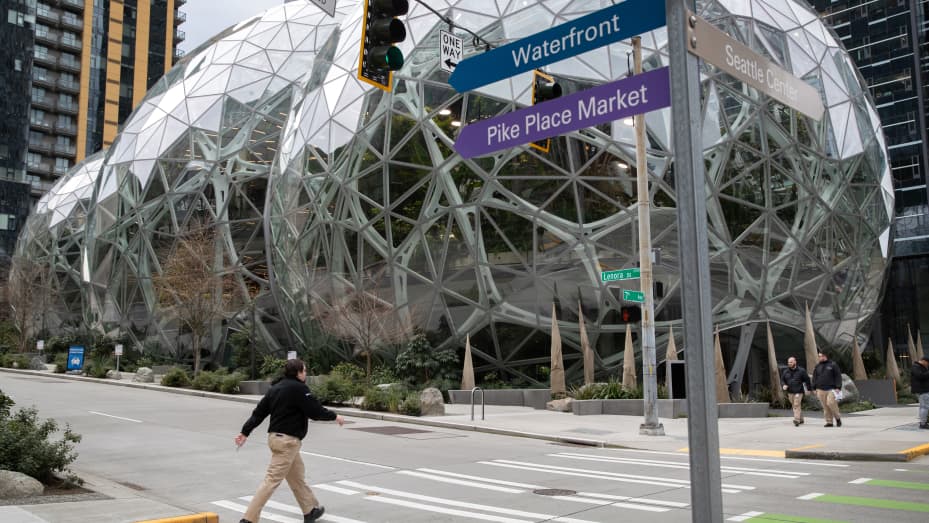Several organizations are recognizing that competitors with more flexible work arrangements could pose a substantial threat to their operations. According to recent annual reports, Amazon, Pinterest, Intel, and PayPal all indicated for the first time that changing work environments could affect their capacity to attract and retain people.

And it demonstrates that, more than two years after the Covid-19 outbreak began, big tech businesses are still debating how and if to bring staff back to work, as well as the risks connected with doing so.
Some white-collar IT workers are ready for workplaces to reopen, while others are wary about returning to their desks and prefer to work from home. Companies are capitalising on this need for flexibility by enticing new workers with enticing advantages like the option to work from home or create their own schedule. Take a look at the new disclosures that were added to the “Risk Factors” section of each company’s 10K filings with the Securities and Exchange Commission this week.
Amazon:
“In addition, any changes we make to our existing and future work environments may not meet the demands or expectations of our employees, or may be regarded as less favourable than other organisations’ policies, affecting our ability to acquire and retain skilled staff.”
Pinterest:
“It’s possible that our future work plan, as well as our ongoing efforts in employee onboarding, training, and development, and retention, will fail. Furthermore, our long-term work strategy is still evolving, and it may or may not fit the needs of our current and future employees, who may prefer work models offered by other organizations.”
Intel:
“Competitors for technical expertise are increasingly interested in hiring our staff, and the expanding availability of work-from-home options, which has been hastened by the COVID-19 pandemic, has both heightened and broadened competition.”
PayPal:
“The loss of any of our key personnel, or our inability to attract, hire, develop, motivate, and retain key and other highly qualified and diverse talent, whether in a remote or in-office environment, or address our workforce’s safety, health, and productivity, could harm our overall business and operational results.”
Facebook, Twitter, and Shopify are among the growing number of Internet companies that have made remote work the standard. Others, like as Dropbox and Atlassian, have abandoned the concept of a centralized campus in favor of allowing staff to work from satellite offices scattered across the country. Coinbase, GiLlab, and HashiCorp, all of which went public last year, operate without a formal headquarters or have a major campus but promote a “remote-first” staff.
When it comes to workplace flexibility, tech professionals now have a variety of options. Even Google, Amazon, and Apple, which have long spent money into lavish headquarters, some with amenities like free meals and napping pods, have started to provide additional options, though they aren’t as permissive as some other tech firms.
Google, Amazon, and Apple had stated that staff will be expected to return to physical workplaces a few days a week until the development of the omicron variety delayed return-to-work plans.
In a post-pandemic world, Amazon CEO Andy Jassy recently told CNBC that he believes a hybrid work environment would be the most feasible solution. “I don’t think you’ll have people coming back to the office 100% of the time like they used to,” Jassy said.












